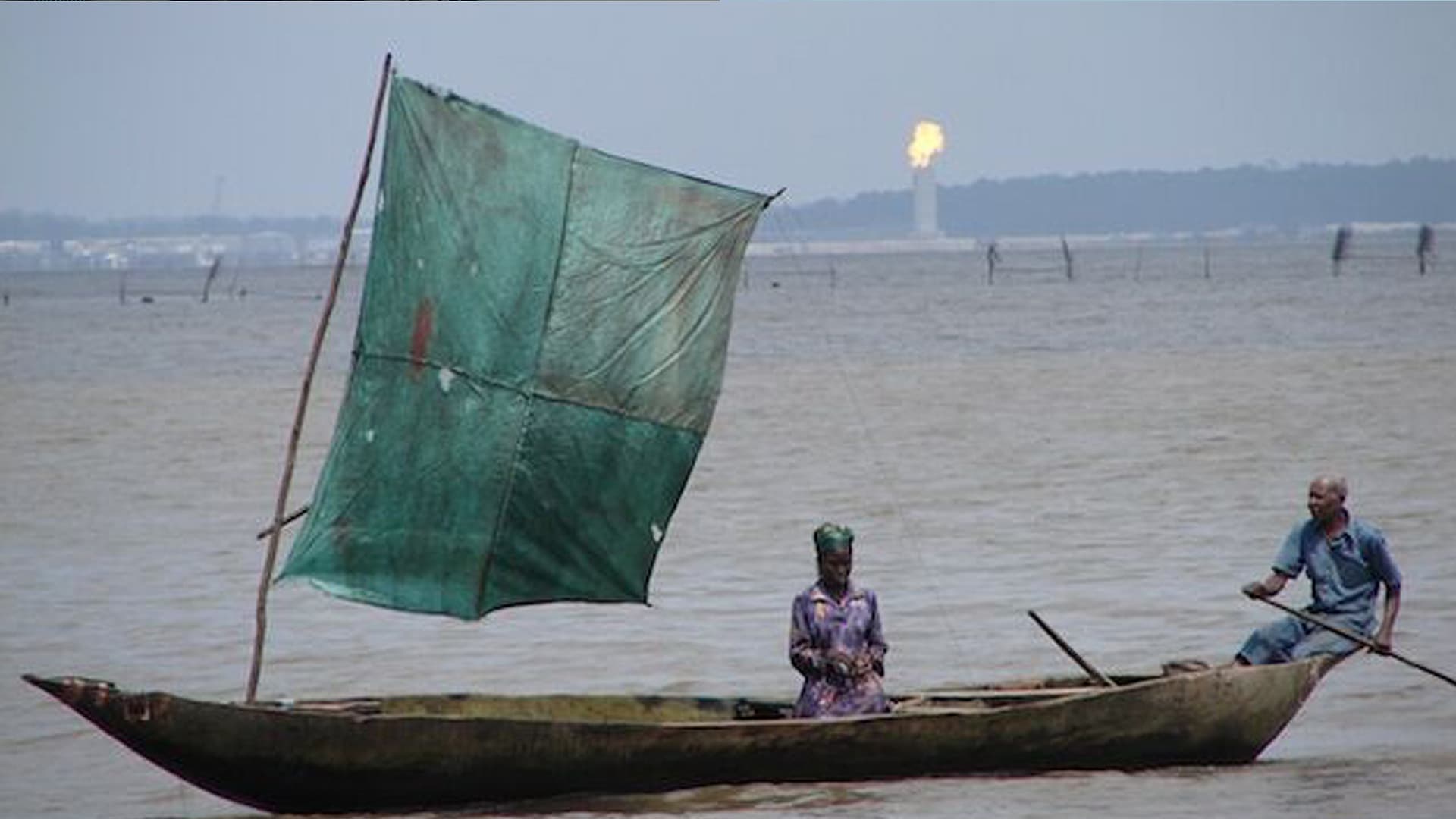
ON NOVEMBER 10, CINEMA POLITICA IS PROUD TO RELEASE SWEET CRUDE, THE 2011 CP AUDIENCE CHOICE AWARD WINNING DOCUMENTARY BY DIRECTOR SANDY CIOFFI, WHICH FOLLOWS THE GRASSROOTS STRUGGLE AGAINST BIG OIL IN THE NIGER DELTA.
SWEET CRUDE is available for a limited time free screening between November 10 (12:00 AM EST) – November 13 (11:59 PM EST).*
To watch the film for free, use the code:
SweetCrudeCP20
WATCH SWEET CRUDE
Bonus features: Director’s introduction & interview with Sandy Cioffi.
* Login to Vimeo, apply the coupon on check-out *
*After November 13, SWEET CRUDE will be available to rent on Cinema Politica On Demand.

Cinema Politica’s special release of SWEET CRUDE commemorates the 25th anniversary of the death of Nigerian author and environmental activist Ken Saro-Wiwa, who became deeply involved in activism when the Nigerian Civil War broke out in 1967 under the Biafra dictatorship. Saro-Wiwa was executed by hanging on November 10, 1995 in what is alleged to be a conspiracy betweeen Royal Dutch Shell and the Nigerian government to exterminate environmental activists who opposed the oil industry and its pollution in Nigeria.
Spurred by the struggle of the Ogoni people against Nigeria’s military dictatorship and resource exploitation of Ogoniland in south-eastern Nigeria, Saro-Wiwa founded the Movement for the Survival of the Ogoni People (MOSOP). To this day, the circumstances around Ken Saro-Wiwa’s death remain without certainty and closure, but his legacy intersects with that of the Ogoni Nine, who were condemned to death under General Sani Abacha.
“Shell basically encouraged state violence against the Ogoni people, and eventually against my father,” stated Ken Wiwa, Ken Saro-Wiwa’s son in 2015, on the 20th anniversary of the execution. “They didn’t tie the noose around my father’s neck, but without Shell’s intervention and encouraging of the military government it would never have happened.”
The story of SWEET CRUDE is ultimately situated at the crux of Nigeria’s oil industry and geopolitical turmoil, as the Ogoni people have long struggled for self-determination in a region whose economic and social reality was redefined by the borders drawn under British colonialism. This tumultuous film documents the history of Nigerian state violence against environmentalists, which has resulted in at least 50,000 civilians dead at hands of military police.


Billions of dollars of crude oil are extracted from Ogoniland’s abundance of oil wells which, according to OPEC, form the world’s tenth largest crude oil reserves. Yet, while multinational oil companies have enriched themselves to the tune of over $700 billion in oil revenues, the people on whose backs they profit remain poor. Children are starving, there are no social services or returns to communities. What is being left for future generations except a time bomb?
Before multinational oil companies like Shell, Chevron, Total and Exxon Mobil established themselves in the region, generational histories show that communities were self-sufficient, with clean water, fishing and harvests. SWEET CRUDE is a vital archive of testimonies on the devastating pollution and violence caused by Shell’s extraction between the 1970s and 1990s, contaminating land and river water on the Nile Delta, while destroying communities and people’ lives along the way.
Since the release of this scathing exposé, oil companies along the Niger Delta have continued to operate with impunity, with ceaseless gas flares and oil spills. Members of the SWEET CRUDE filmmaking crew were themselves detained during filming by the Nigerian military, and imprisoned for a week without trial. Together, these collective struggles have shaped over 25 years of resistance against some of the world’s most powerful corporations.
Today, human rights organizations continue to report on the extent of contamination as oil companies greenwash their image in response to public pressure. In its June 2020 report, Amnesty International states that environmental remediation and monitoring for safe drinking water on the Niger Delta has still not been properly carried out. Contractors hired for clean-up are described as having “no registered expertise in oil pollution remediation or related areas”. Additionally, Shell has major conflicts of interest by placing staff on the boards of clean-up governing projects and Nigeria’s state agency for hydrocarbon remediation.
Extrajudicial killings of Ogoni continue, as do community efforts to exonerate the nine activists who were murdered 25 years ago today. As Fegalo Nsuke, the current president of MOSOP writes in his plea for justice, “Ogoni’s resources have been exploited since 1958, without the people anything to show for the huge revenues derived from their land. While the rest of Nigeria makes huge budgets from the revenue derived from Ogoni’s resources, the Ogoni people live in penury, are left with the painful consequences of oil exploitation and are being treated like sub-humans in their own country.”

Cioffi’s crucial film offers a unique case-study of grassroots organizing that would be pertinent viewing for activists and social movements looking to organize their communities and leverage media. Despite the critical role of SWEET CRUDE in centering the voices of Ogoni people and communities impacted by the oil industry, the documentary offers a potent warning on how filmmakers can also become implicated in exploiting trauma and telling stories from the outside.
“In its worst form, this kind of documentary can become “apocalypse porn”,” Cioffi wrote in a critical review, written in 2019, of her filmmaking process and role as an outsider documenting the Ogoni grassroots resistance. “On top of that, any money or reputation gained for the filmmaker is value not returned or shared in most cases.”
As Cioffi observed, the greatest impact with her first feature was seen when the film side-stepped profit to engage wider audiences as an artifact of public knoweldge and shared history: “It was when we freely released images, research, copyright-free footage, that the broader Niger Delta story organically wrapped itself around and through SWEET CRUDE … Because when the film was distributed as an organizing and education tool, it did provide some value for the people in it.”




